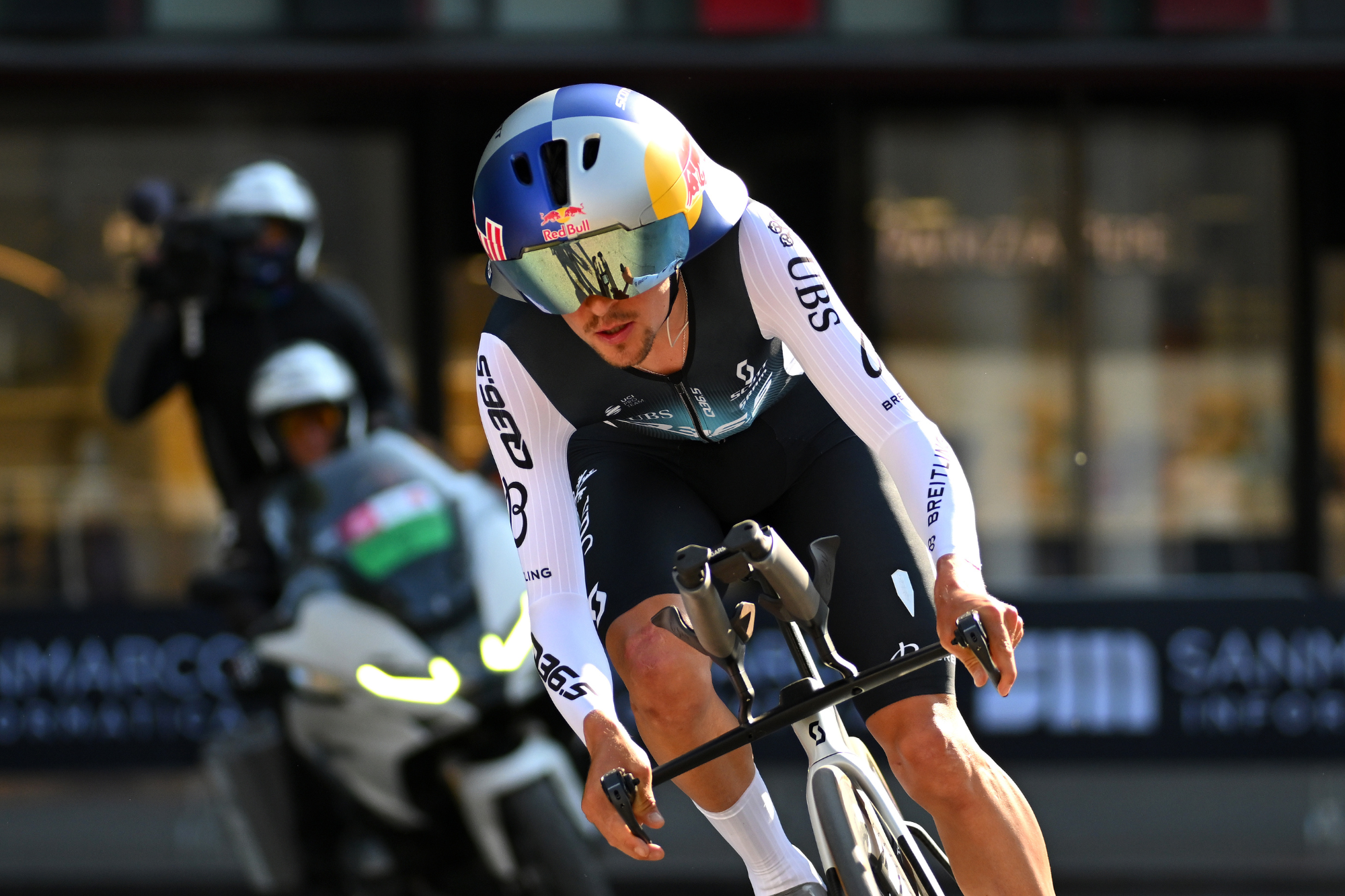
Tom Pidcock has won Olympic titles in mountain biking, world titles in cyclocross, up Alpe d’Huez in the Tour de France, and on the gravel of Strade Bianche. But on the road at least, he’s never been as consistent as he is right now – and he’s said as much himself.
Joining Q36.5 from Ineos Grenadiers in the winter after growing unhappy and frustrated with management at the British team, Pidcock set his sights on proving that he could back up impressive performances one after the other, something he often failed to do with Ineos, even if he did demonstrate his enormous capabilities from time to time.
It’s clear that the change in team has benefited Pidcock, with the Briton winning two stages and the overall at the AlUla Tour – his first GC triumph as a pro rider – finishing second behind Tadej Pogačar at Strade Bianche, third at La Flèche Wallonne, and winning or coming close to winning stages at the Ruta Del Sol and Tirreno-Adriatico.
“There have been a lot of small things, different parts of the puzzle that have come together,” the 25-year-old’s longtime coach Kurt Bogaerts told Cycling Weekly, “and the result is he’s in a better place, mentally and physically.
“We made a few adjustments in training, with more intensity but the same volume, and also with nutrition. These parts we have definitely improved and he’s getting better results.
“He had a big performance in Strade Bianche; the stage races we did went really well; he was third at Flèche, but he was unfortunate to puncture in the last 10km of Amstel Gold, and he should have been second or third at Liège [Bastogne-Liège].
“There have been a few small mistakes like hydration and fuelling errors at Liège that we need to stop with the age he’s at, but the consistency is there and if we look along the curve we see he’s definitely a better rider and we see that his numbers have also improved.”
Pidcock is currently riding the Giro d’Italia, chasing stage victories rather than fighting for the maglia rosa. He has admitted that the refreshed approach to racing has allowed him to fall back in love with the sport once again – something that Bogaerts has picked up on.
“He’s in a good place again and you can see that he’s enjoying racing his bike,” the Belgian said. “We don’t have a massive target for him, but we instead just want to get the maximum out of him. We’re not saying we want to win a particular race – we just want to be consistently in the game, give him the tools to perform on the day, and we’ll see where it brings him.
“There are still a few things to fall into place because it was a big change but once everything’s settled down then he’ll definitely have found the platform where he can perform.”
A criticism of Pidcock while he was at Ineos was that he was too focused on his off-road exploits, with senior figures and commentators suggesting that his mountain biking success was to the detriment of his road career.
Bogaerts – and Pidcock, for his part – rejected that notion, insisting that the two-time Olympic mountain bike champion’s versatility is his strength. Indeed, between the Giro and late-August’s Vuelta a España, Pidcock will once again compete on the mountain bike.
“That’s who he is,” Bogaerts said. “Maybe people want to change him to go in one particular direction, but Tom hasn’t made that choice yet and maybe never will make a definitive choice. He just sees progression in every part of cycling, and he pushes everyone around him to support him in that kind of philosophy.
“We will do some mountain biking this summer and then gravel at the end of the year, and it’s what he likes to do. In his current program, I don’t think that’ll bring any negatives onto the road. It cannot be an excuse not to perform at his best on the road.”







